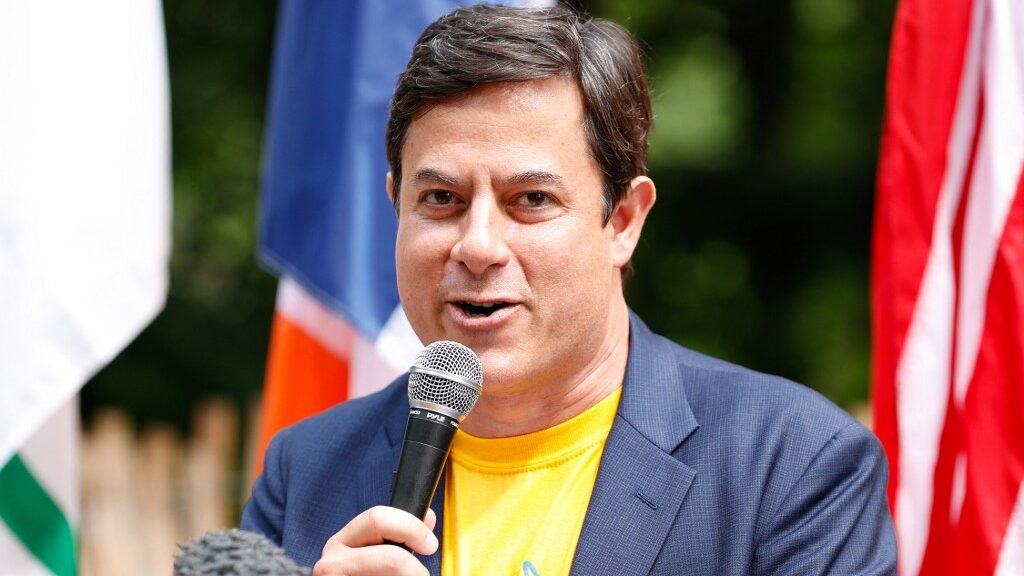
After a deadline deal was struck between the Massachusetts House and Senate, the sports betting bill has been awaiting Governor Baker’s signature.
Last week he finally put his pen to paper and now it’s a matter of when, not if, Massachusetts residents can legally gamble on sports.
Baker Makes It Official
The clock was ticking on Governor Baker to sign the sports betting legislation for which he had been advocating the last several several years.
And before the deadline, Baker signed the highly-anticipated bill which will pave the way for online and retail sports betting in the Bay State.
“Our administration first filed legislation to legalize sports wagering in the Commonwealth several years ago, and I am glad to be able to sign this bill into law today,” Baker said in a statement. “We appreciate the dedication and compromise that the Legislature demonstrated on this issue, and we look forward to supporting the work of the Massachusetts Gaming Commission on the responsible implementation of the law over the next several months.”
Tax Rate Generous
The influx of revenue will be a boon to the Massachusetts tax coffers, and the rate at which the retail and digital operators will be levied is comparatively generous.
Retail sportsbooks will be taxed at 15% while online providers will pay at a rate of 20%, a far cry from the 51% online operators pay in New Hampshire, Rhode Island, and New York.
The low tax rate will have long-term benefits because the online sportsbooks will have a bigger budget to advertise and introduce more lavish sign-up bonuses and promotions.
This will maximize the target audience and bring more people into the fold which will ultimately generate more revenue for the books and Massachusetts.
Better Late Than Never
Richard McGowan, a Boston College professor who studies the gambling industry, offered his opinion on the Massachusetts tax rate, “Because they’re late coming to the table of sports gambling, maybe they think they’re gonna certainly make it more interesting for the operators to come here if it’s a lower tax rate.”
Massachusetts is indeed a bit late to the party, coming in as the 36th state to legalize sports betting but better late than never.
In addition to the approximately $50 to $60 million in annual taxes projected, the licensing fees will generate $70 to $80 million initially and be up for renewal every five years.
College Sports Included
The major bone of contention between the House and the Senate was the inclusion of college sports. The House advocated for it while the Senate denounced it.
In the end, the House got their way, well, for the most part. Colleges and universities in Massachusetts will not be permitted on the sports betting menu in Massachusetts unless they are in a national postseason tournament, ala March Madness.
Does it make sense? Not at all but the Senate needed a win of some sort and that is their consolation prize. But getting college sports into the bill was vital as studies have shown that college sports betting contributes just as much, if not slightly more than professional sports to the overall revenue.
Without college sports, Massachusetts voters would cross state lines to fill the pockets of neighboring states like New Hampshire, Rhode Island, Connecticut, or New York.
This would also continue to keep the illegal local bookmakers in action as well as the offshore sportsbooks that are out of the reach of U.S. jurisdiction.
When Does Mass Go Live?
“I want the public to understand, as we as commissioners are starting to understand, that this isn’t something that’s going to happen overnight,” Gaming Commissioner Brad Hill said.
“This is going to take a little longer than people probably anticipate, and I’m OK with that because I want to do it right.”
Several months from this August writing is about when we will see Massachusetts open for business. If the moon and stars align it could go as early as January but it could also be as late as March Madness.
It can’t come soon enough for Bay State residents who have waited for several years for legal licensed betting to be available but it appears they will likely have to wait until at least the New Year.













